FORT LEWIS, Wash. - Representatives from local tribal canoe families landed on Solo Point July 15 during their annual tribal journeys which will take them all the way into Canada.
Seven canoes from several local tribes, including the Cowlitz, the Chehalis and the Puyallup; came ashore after pulling from Squaxin Island that morning.
The canoes cut through the shimmering water, as the pullers guided them in a circle, each passing the group of Nisqually tribe members gathered on shore to welcome the pullers.
Representatives from the Nisqually tribe drummed and sang while the canoes pulled up to the shore. Tribal chair Cynthia Iyall offered a greeting to the pullers. Then, one by one, a representative from each canoe announced the name of the tribe and asked permission to come ashore.
"We have traveled from Squaxin Island to your shores," announced a member of the Chehalis canoe family. "We are tired, we are hungry, we ask permission to come ashore."
After each request, Iyall granted permission. The pullers pounded their paddles on the bottom of their canoes after each announcement.
After the formal protocol on the beach, the Nisqually tribe hosted the pullers, skippers and supporters for dinner and a night of traditional dancing and singing at the tribe's Braget Farm property in the Nisqually River delta. After dinner, as the participants made their way to the area where the singing and dancing would take place, seven eagles soared above.
"It's considered a blessing," said Zelma McCloud, Nisqually tribal elder.
The canoes continued on to Owen's Beach the next morning and will take several more days to reach their final destination, Cowichan Bay, British Columbia.
Modern canoe journeys like this one began in the 1990s with the tribes on Vancouver Island, British Columbia.
"Some of the tribes were having problems with youth, with alcohol and substance abuse," said Brian McCloud, a Nisqually tribal council member and canoe captain. "They took and put them on these canoes for two weeks, you don't have anything to do but paddle, you're not going to want to go out and party all night."
Since then the event has grown to include tribes in the United States, and this year McCloud expects more than 70 canoes at the end of the journey,
Volunteer pullers not only commit to staying clean and sober for the journey and work, sometimes year-round, on their canoeing skills, they also learn traditional songs and drumming as part of the canoe family's training. These teachings help the younger tribe members to learn about their culture.
"The younger generation doesn't know all these things, so they wanted to keep the tradition alive and teach the younger people," Zelma McCloud said.
Brian McCloud considers the journey a way of keeping the Nisqually Tribe's traditions alive as well as honoring those who went before.
"Back in the day, our ancestors used to have to travel by canoe, so it's just honoring them," McCloud said. "I'm glad we can teach our youth to go ahead and carry on traditions, I'm glad we still have elders to teach us and push us in that direction.
"We want to keep our traditions going," he said.
Fort Lewis officials work closely with the tribe to help facilitate keeping those traditions alive, also, said Bret Ruby, Fort Lewis' cultural resources manager.
"A lot of people don't realize that Fort Lewis sits squarely in the heart of the tribe's traditional homeland, and many of the tribe's most sacred places are found on lands that are now within the boundaries of Fort Lewis," Ruby said. "Solo Point is one of those very sacred places."
Solo Point was used as a landing place and fishing station for the Nisqually tribe for hundreds of years, and, even though it now falls on Fort Lewis lands, the tribe still retains treaty rights to use it.
"The leadership at Fort Lewis has always been committed to maintaining the tribe's access to their sacred places," Ruby said.
Rachel Young is a reporter with Fort Lewis' Northwest Guardian.
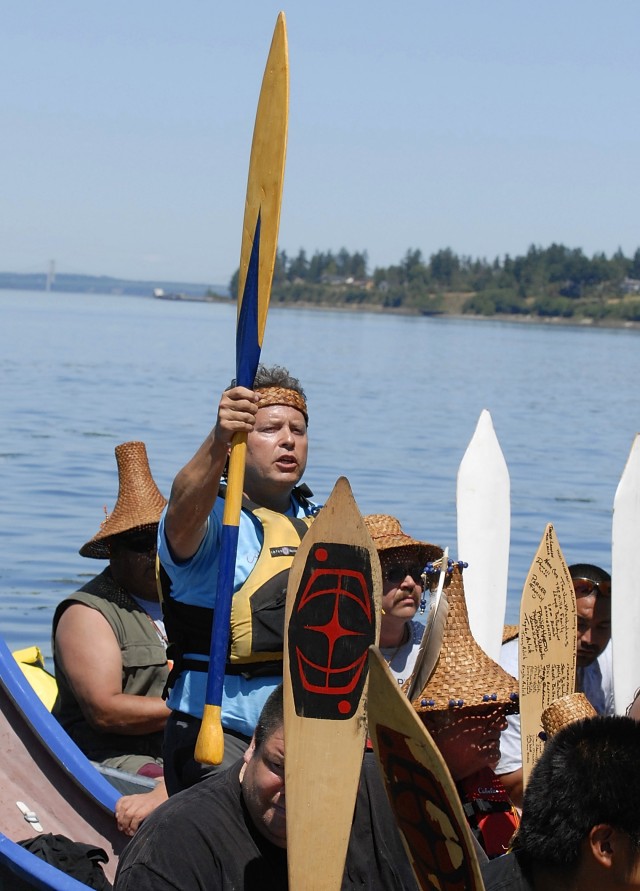
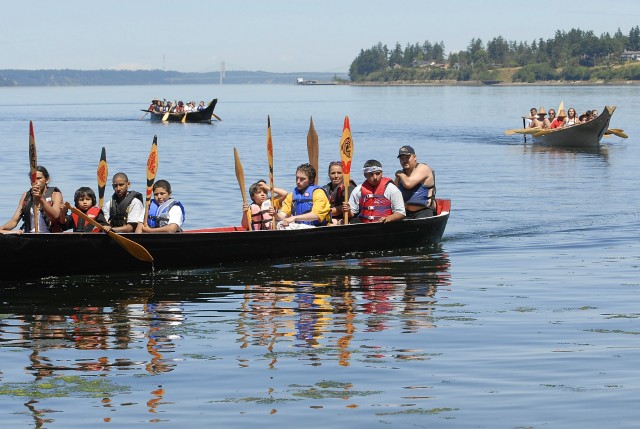
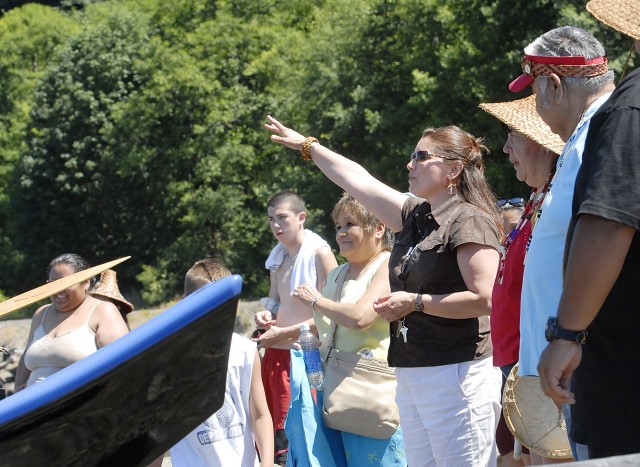
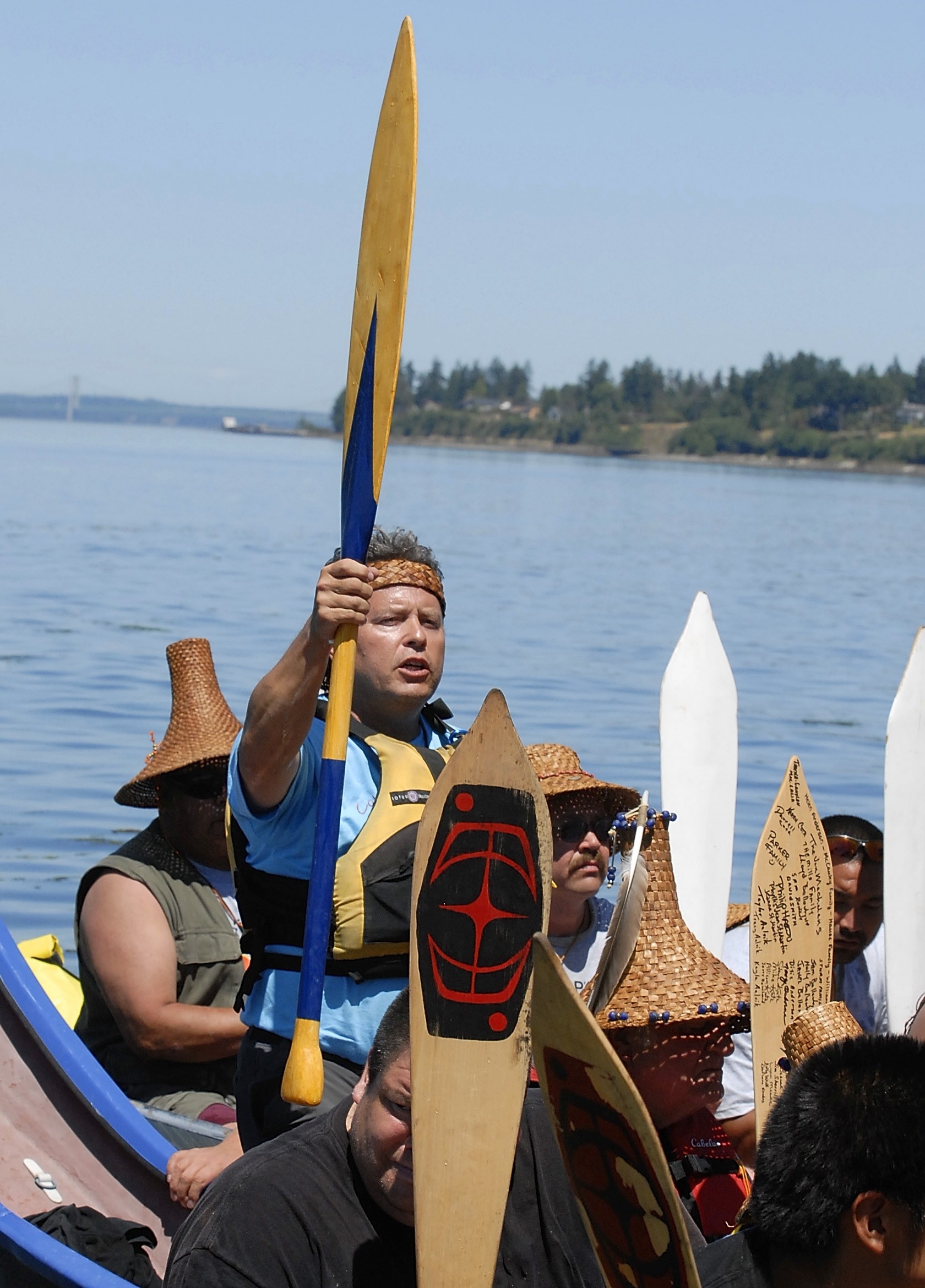
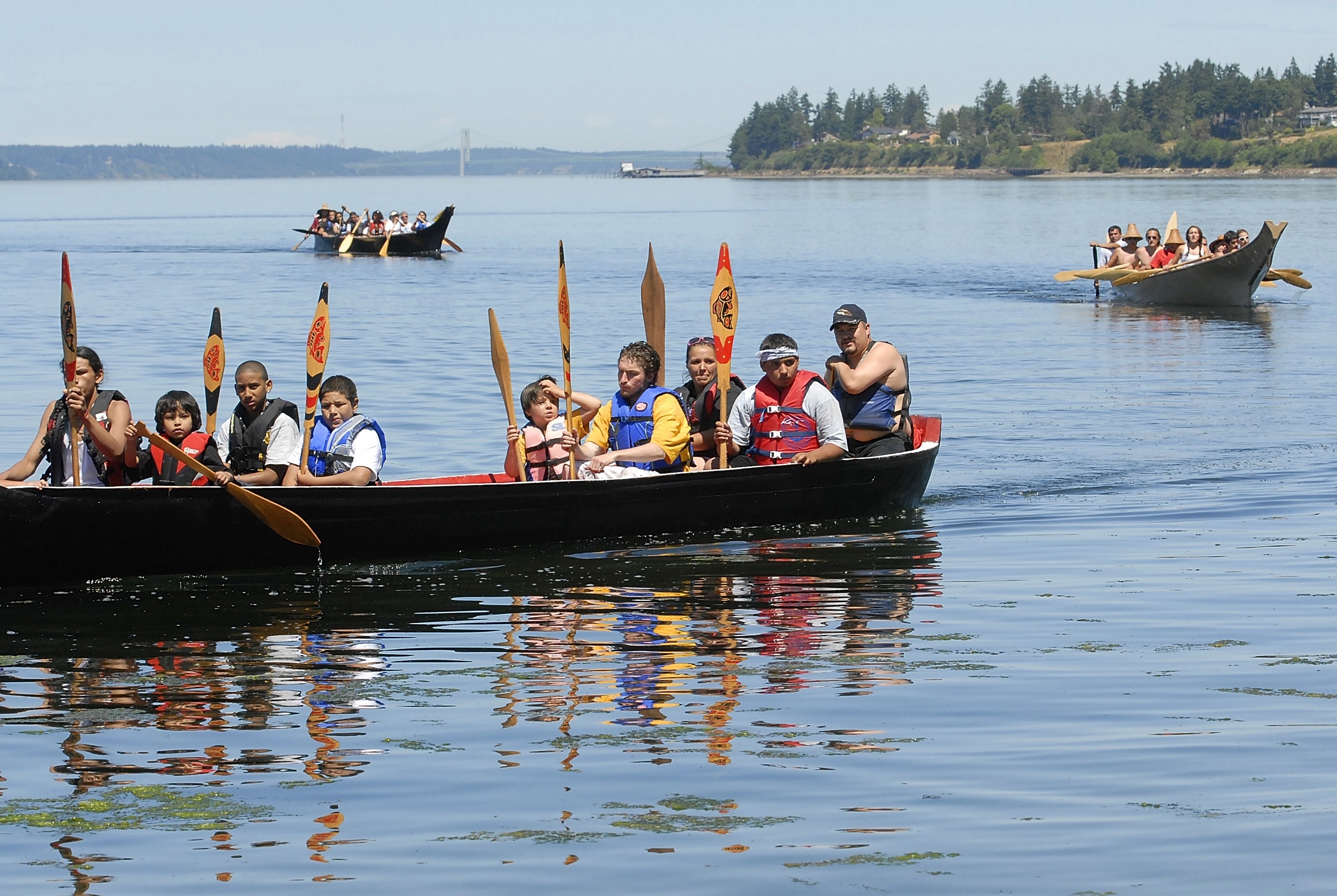
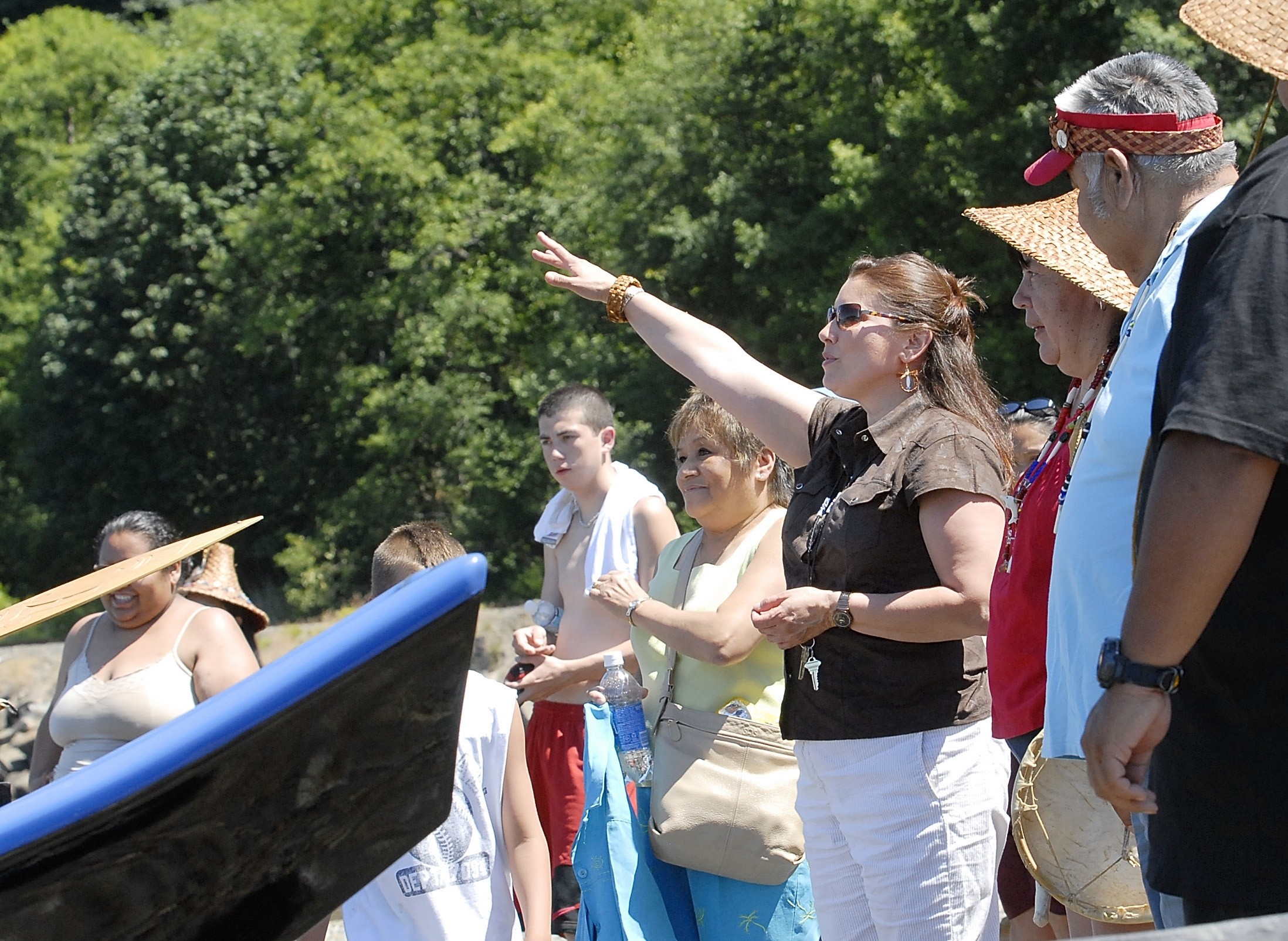
Social Sharing